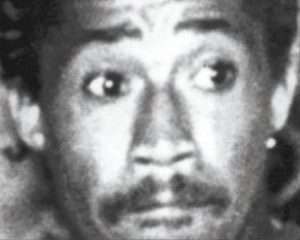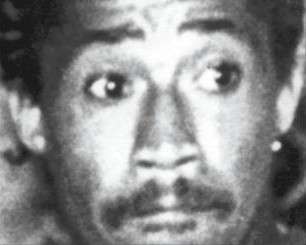Earl Clanton was executed by the State of Virginia for the robbery and murder of a librarian
According to court documents Earl Clanton would rob his neighbor Wilhemina Smith, a 38 year old librarian, and in the process of robbing her would strangle the woman to death
Earl Clanton would be arrested, convicted and sentenced to death
Earl Clanton would be executed by way of the electric chair on April 14 1988
Earl Clanton Photos

Earl Clanton FAQ
When was Earl Clanton executed
Earl Clanton was executed on April 14 1988
How was Earl Clanton executed
Earl Clanton was executed by way of the electric chair
Earl Clanton Case
Earl Clanton Jr., who participated in the nation’s largest death row breakout, was executed Thursday night in the state’s electric chair for the strangulation and robbery of a school librarian.
Clanton, 33, who once wrote an award-winning essay detailing how his abusive childhood contributed to his life of crime, was pronounced dead at 11:07 p.m. EDT. He had no final words.
Clanton was sentenced to die for the 1980 murder of Wilhemina Smith, 38, in Petersburg. The elementary school librarian was found dead in her apartment, her face bloody from stab wounds and a belt around her throat.
Police found Clanton under a bed in the apartment. He told police he had heard Smith call for help, came to Smith’s aid and was attacked by intruders.
Witnesses said Clanton appeared wide-eyed as he was escorted into the death chamber by six guards and strapped into the wooden electric chair.
Ten witnesses, including four from the media, watched from a glass-enclosed chamber as two 55-second jolts of electricity were applied.
‘It was very difficult to watch,’ said Terri Walker, a reporter for the Virginia News Network, based in Richmond. ‘I don’t want to ever do it again.’
Clanton’s ‘entire body came off the chair. … The veins in his neck bulged,’ she said.
Clanton’s shirt front was held together by Velcro. Walker said the prison doctor ripped his shirt open and then waited a minute before checking for a pulse.
Clanton was put to death despite a flurry of last-minute appeals by his lawyers and pleas from former ‘Dennis the Menace’ television star Jay North. North had read accounts of the breakout and became friends with the convicted murderer. Gov. Gerald Baliles turned down Clanton’s petition for clemency an hour before the execution.
At the time of the slaying, Clanton was on parole for a New Jersey murder conviction and was wanted by authorities after he walked away from his trial on charges he severely beat a Petersburg man with brass knuckles.
Clanton was the seventh person to die in Virginia and the 98th to be executed in the United States since the Supreme Court reinstated the death penalty in 1976. His was the first execution in Virginia this year and the fifth in the United States
Clanton refused a special final meal and declined all but one interview request. He told a Spanish national television crew working on a documentary that ‘being literally burned to death … is something that’s inconceivable to me.
‘You have to ask yourself,’ he said in that interview, ”Why do you put a mask over my face when you murder me?’… They won’t let people see the horror of it. That reality would change the heart.’
Clanton spent his final day visiting with his mother, sister and two aunts. Family members described him as angry with a justice system he called racist.
Clanton gained notoriety in May 1984, when he and five other convicted killers staged a movie-style escape from a death row touted as ‘escape-proof.’
Led by brothers Linwood and James Briley, the convicts overpowered guards, stole their riot gear and faked a smoking bomb to gain access to a prison van and freedom. It wasn’t until 40 minutes after the prisoners drove off that the escape was discovered.
Clanton and one other convict were recaptured within 48 hours of fleeing the Mecklenburg Corrrectional Center. Police found them drinking wine and eating cheese in a North Carolina coin laundry. The others were recaptured within three weeks.
Clanton is the third of the six escapees to be put to death. The Briley brothers, who were responsible for a rampage of 11 murders in Richmond, were executed in October 1984 and April 1985.
Clanton’s final appeals hinged on new evidence about the physical and sexual abuse he suffered as a child. He got a stay Tuesday from U.S. Judge Robert Merhige, who believed Clanton could have been psychologically unable to inform his trial lawyer of the events of his childhood.
Merhige was overruled after a three-judge panel heard the case in a Thursday telephone conference.
Hours later, the Supreme Court also refused to block the execution








